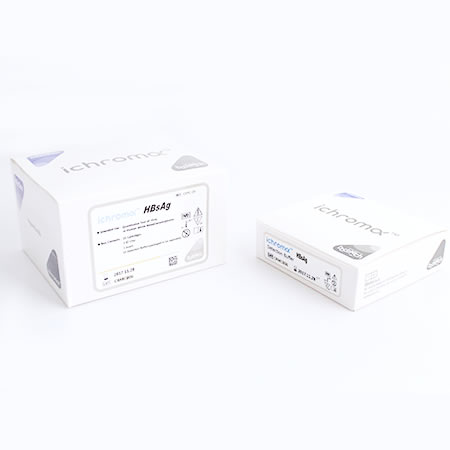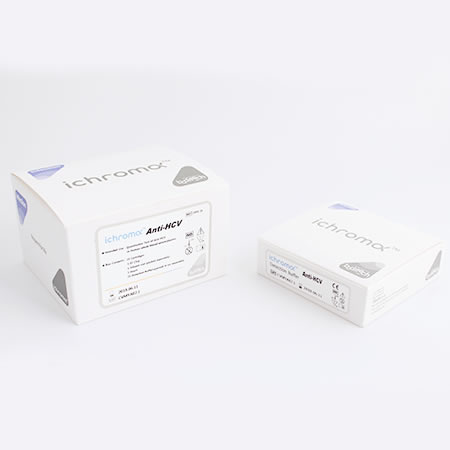| Detection Range | COI ≥ 1.0 |
| Sample Type | Whole Blood, Serum, Plasma |
| Reaction Time | 12Min |
i-Chroma HBsAg
Detection of the Hepatitis B virus surface antigen (HBsAg) in serum or plasma indicates an infection caused by the hepatitis B virus. It is the first marker to appear during the course of the disease. Clinical and biological symptoms appear two to three weeks after the initial infection with HBV. Presence of HBsAg can be as short as a few days or as long as several years.
If HBsAg persists for more than six months, the hepatitis is classified as ‘chronic’. Due to existence of numerous asymptomatic chronic carriers, screening for HBsAg is required for each blood donation and for each pregnancy to enable the newborns of the carrier mother to receive prophylactic treatment.




